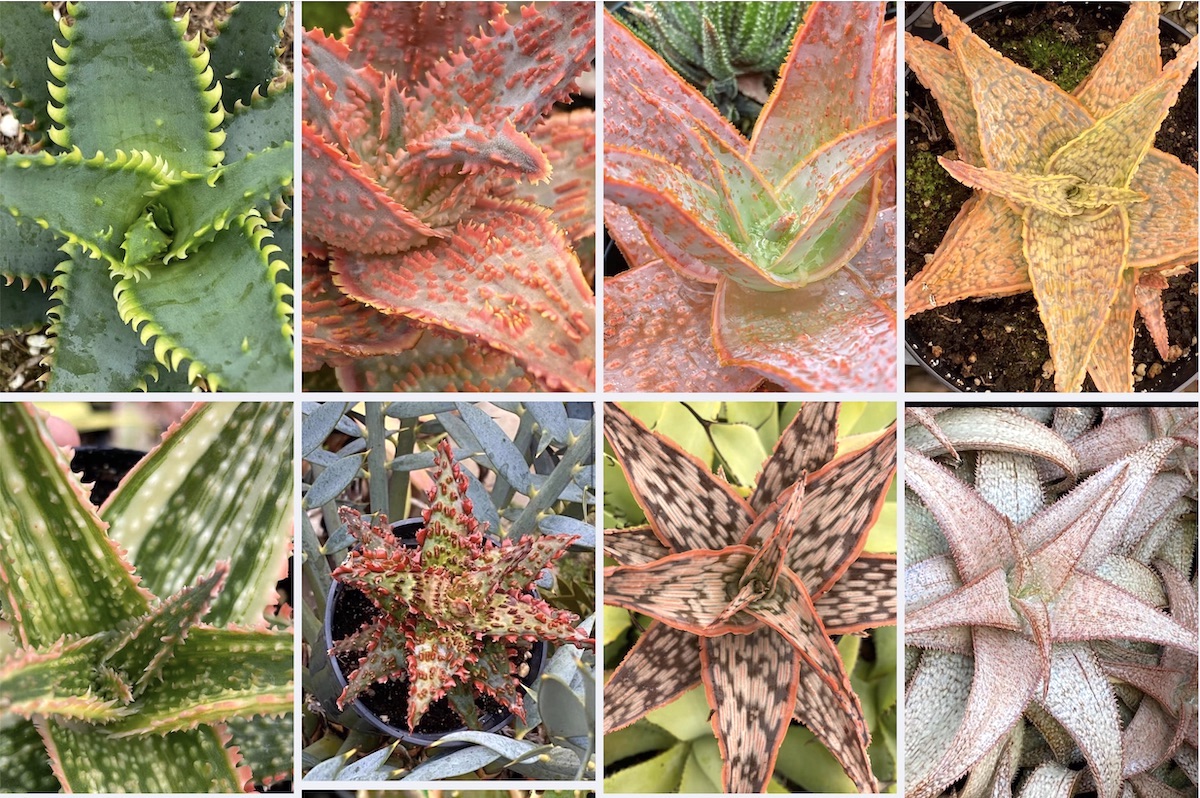
Dwarf Aloes Perfect for Pots
Dwarf or “star” aloes are becoming hugely popular. No two are exactly alike, yet all share similarities. Most are hybrids selected for their beauty and collectibility.

I'm very grateful for this comment on my YouTube page. Any succulent that does well in the Northeast gets a major thumbs-up!
These diminutive aloes average a few inches in diameter and seldom attain more than 8. Characteristics that appeal to collectors include stripes, zig-zags, textural bumps, and ridges. Colors range from creamy white through shades of red, blue, brown, orange, green, and yellow. Some have non-spiny teeth along leaf margins that contrast with leaf color.
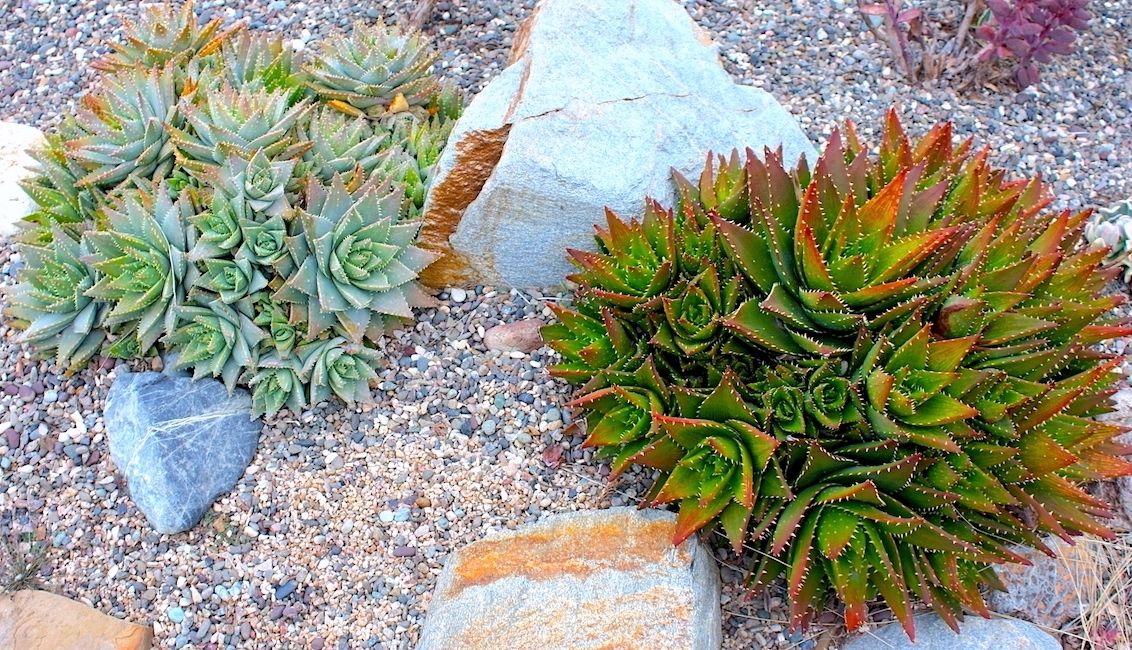
Dwarf aloes, compared to in-ground garden aloes, are more delicate and showy, and are best grown in pots. Jane Curtis, who lives in the northeastern US, says, "I think these dwarf aloes are so beautiful and have the most interesting textures and colors. I find them easy to grow indoors in the winter and outside on my balcony in warmer weather."
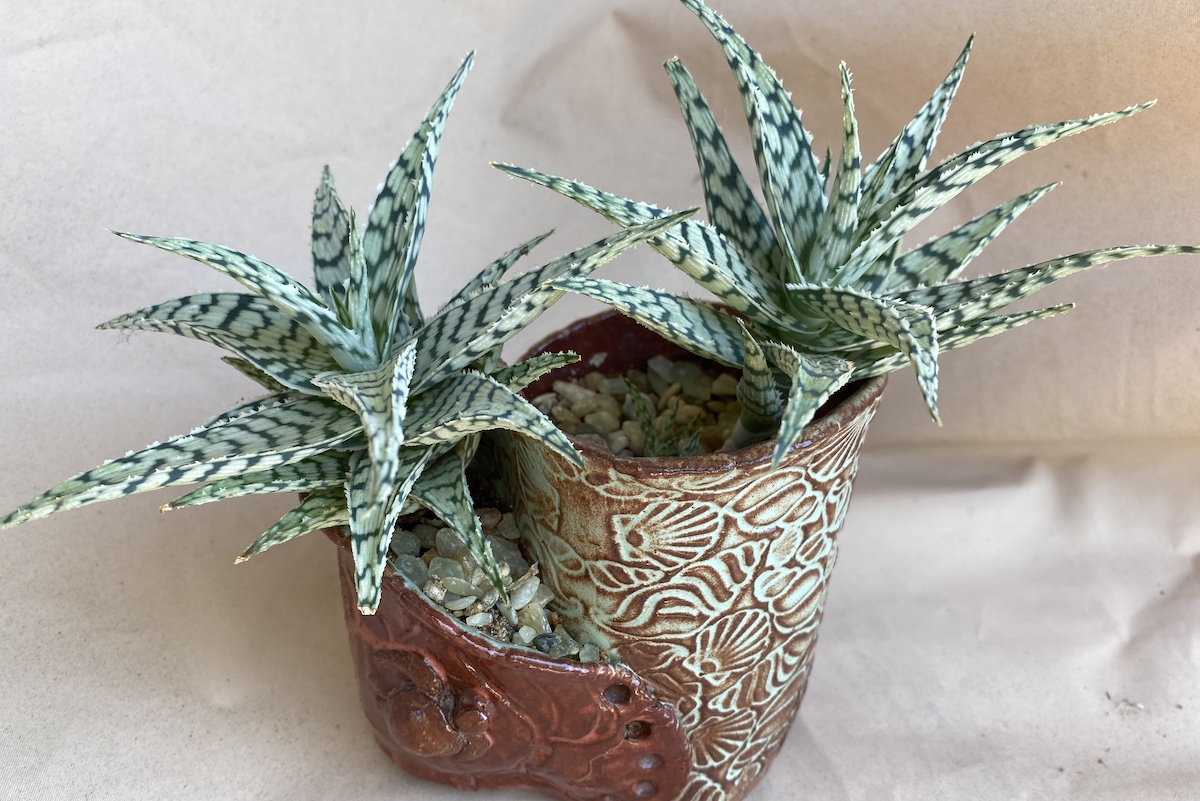
Aloe 'Blizzard' has zig-zag patterns. Pot by Port Town Pottery
What about flowers?
One of the best things about landscape aloes are their flowers: tall, colorful spires in shades of red, orange or yellow. Blooms of dwarf aloes, on the other hand, are small and unimpressive, like those of haworthias. Hummingbirds do like them, though.
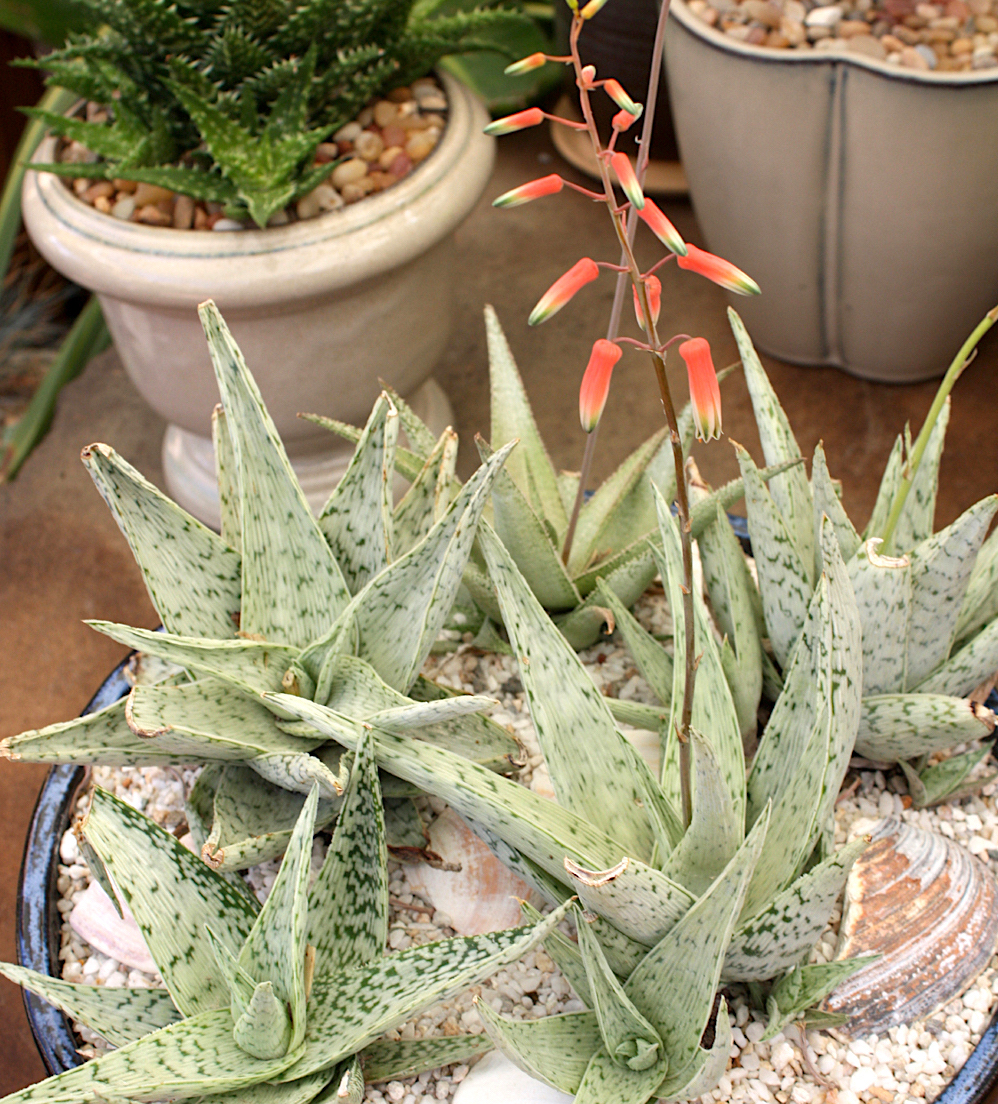
Dwarf aloe in bloom: Aloe 'Moondance'
Let's pot 'em up!
In my new video, you'll see me pot-up three different dwarf aloes from Oasis Water Efficient Gardens Nursery near San Diego.
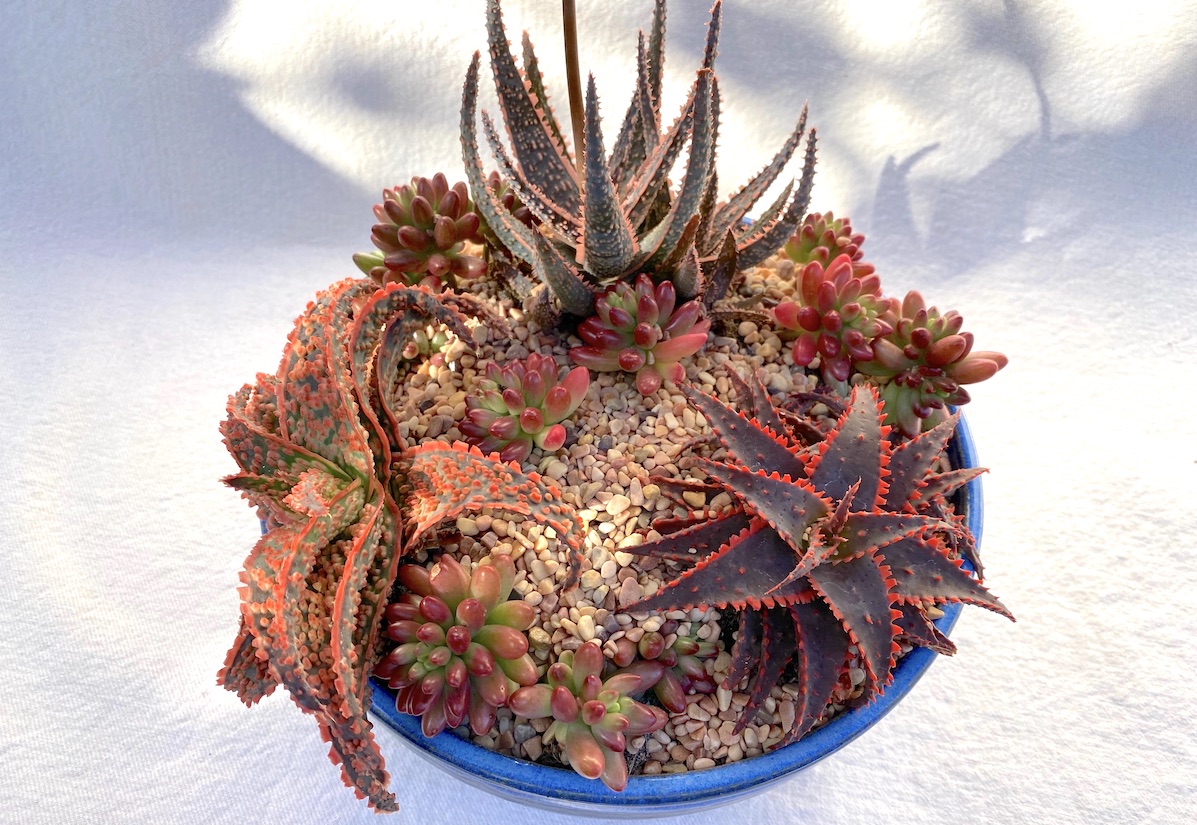
I selected a royal blue pot to contrast with the red-orange and pink hues of the aloes. Sedum rubrotinctum ‘Aurora’ fills gaps.
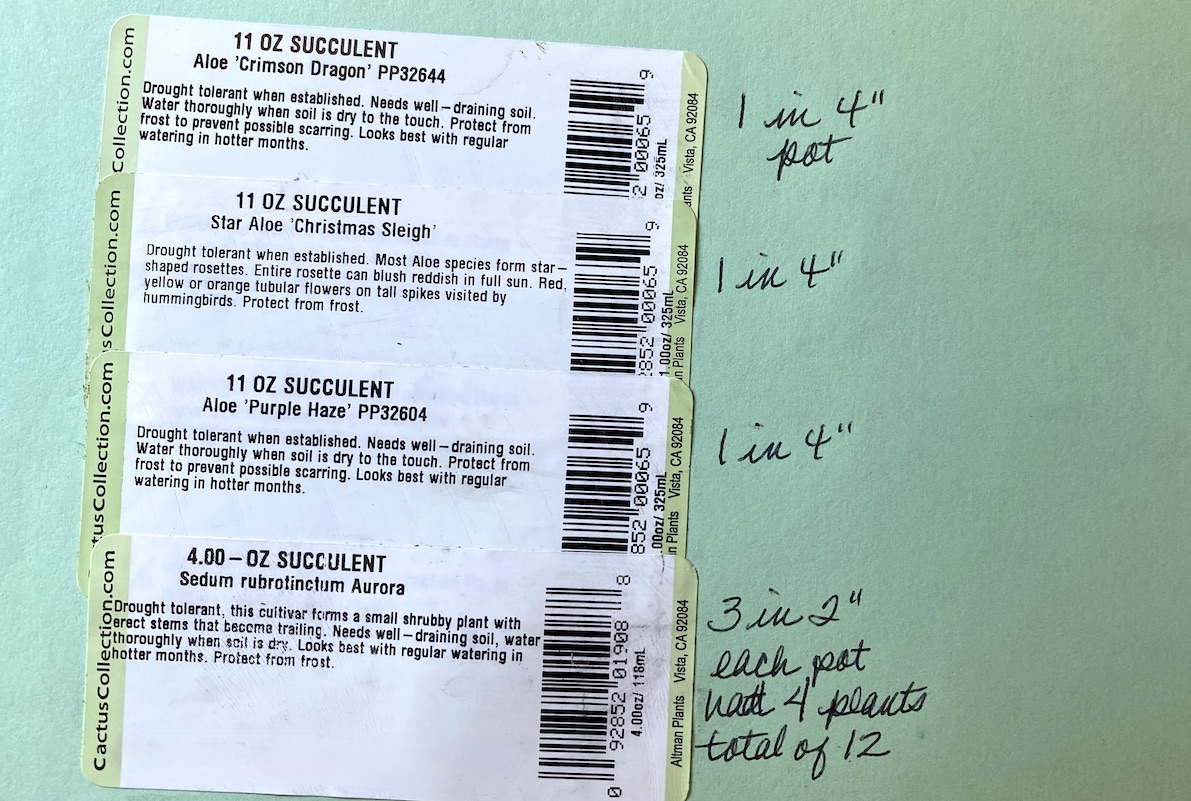
Before discarding nursery pots, I peel off their labels and put them in a file folder, so I can refer to them later.
Dwarf Aloe Care Essentials
- Protect from sunburn, especially while newly acquired ones are getting acclimated to your garden.
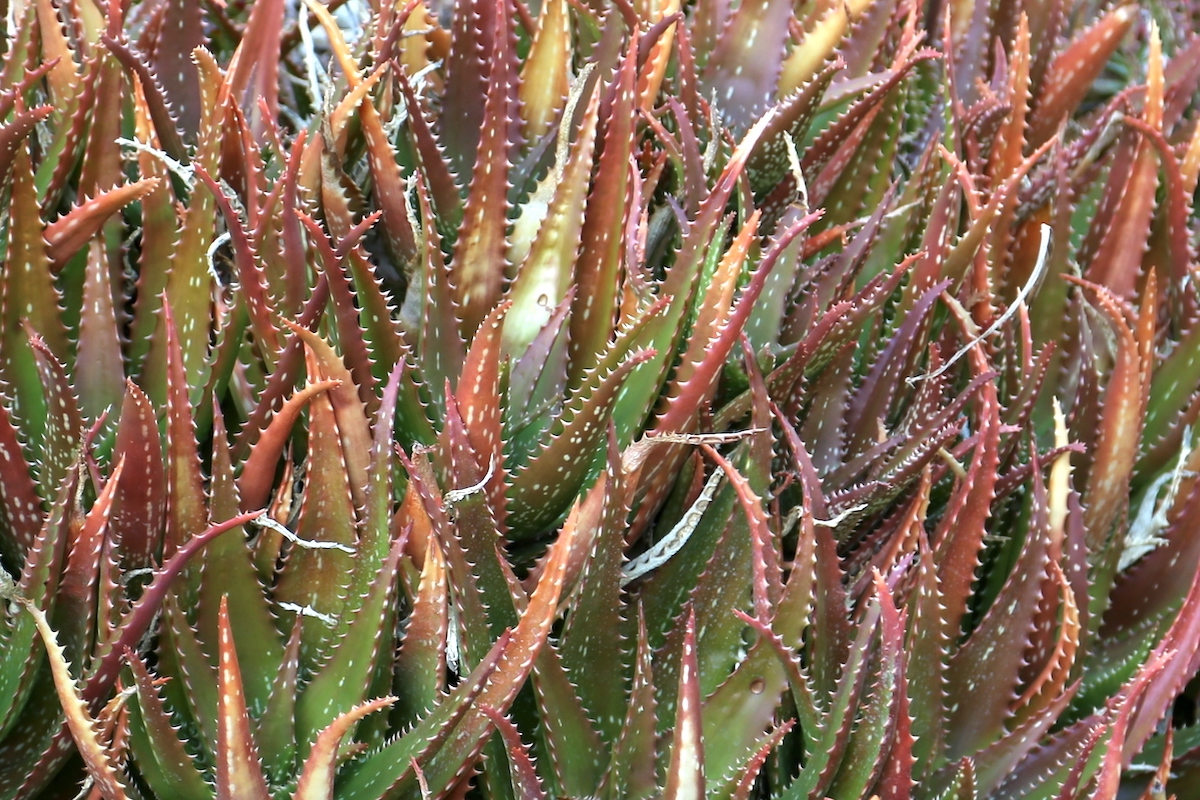
- Sun is essential for color. If they don’t get enough light, orange, red, purple, or yellow aloes revert to green.
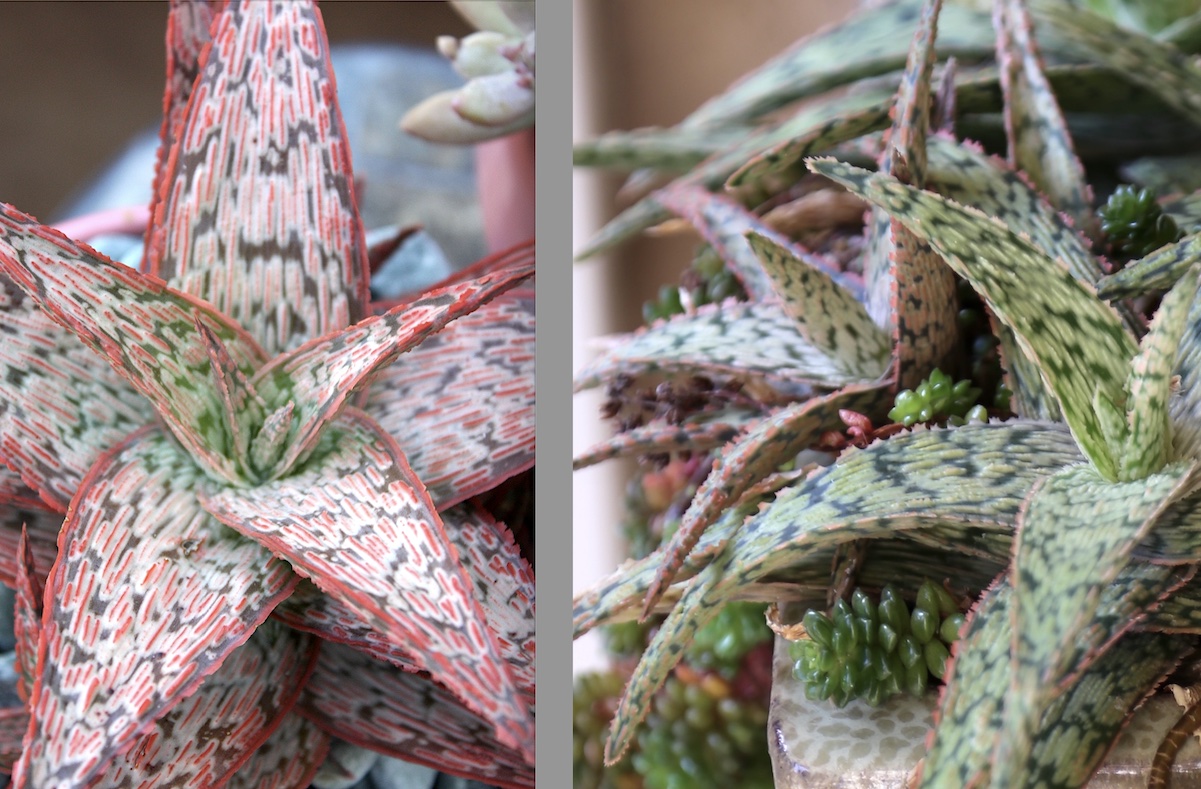
- Keep or remove offsets. Let them crowd together or plant them as you would any cutting. Roots will grow from the base of the rosette.
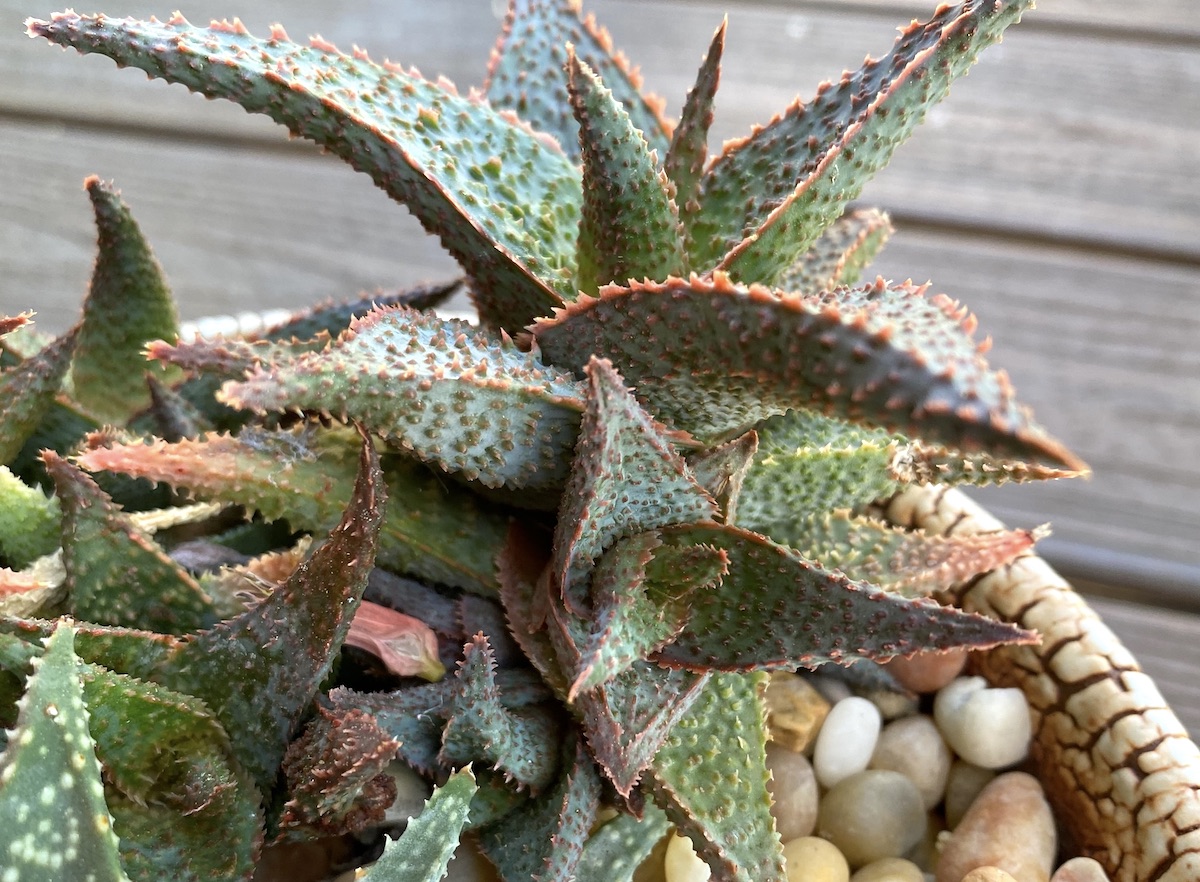
- Protect from temperature extremes: below 32 degrees F or above 95. Move beneath an overhang or indoors, or drape them with a lightweight fabric.
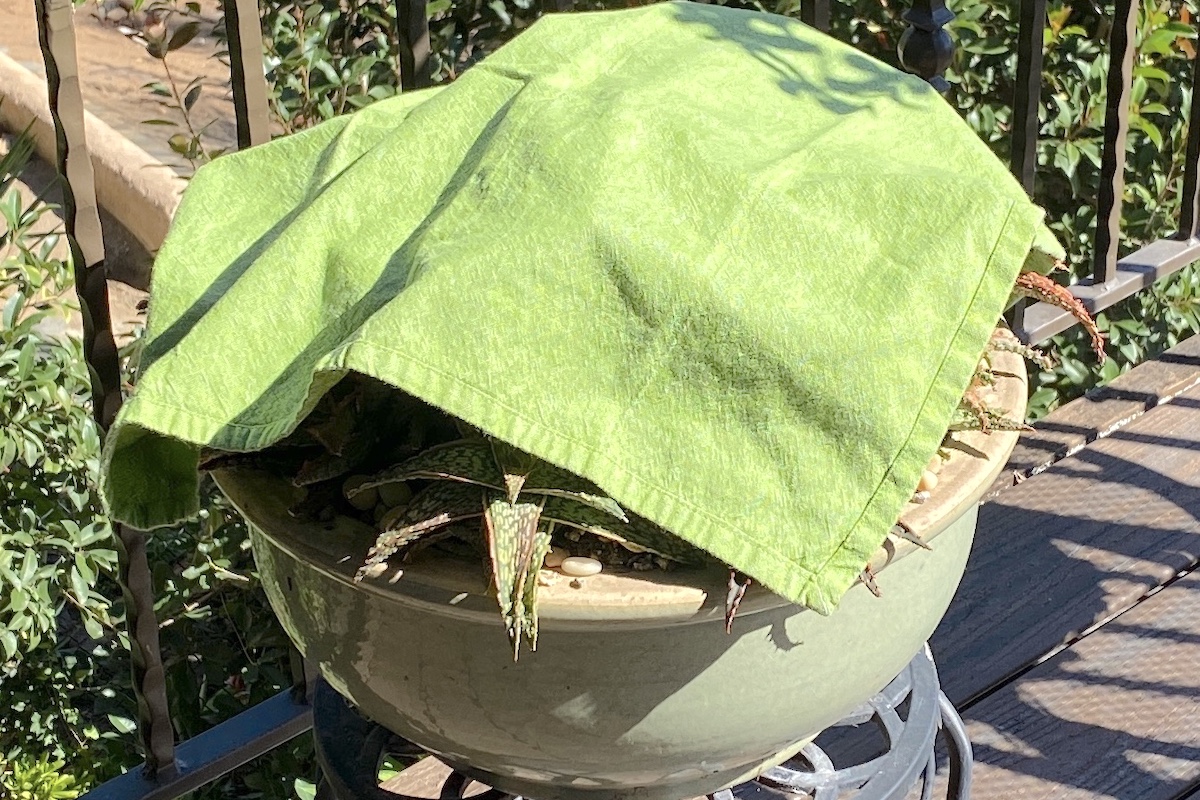
- Watch for aloe mite, a microscopic bug that causes abnormal growth. It's best to discard the infested plant, because the mite can spread. But if the plant is important to you, excise the cancerous growth and isolate the aloe away from others.
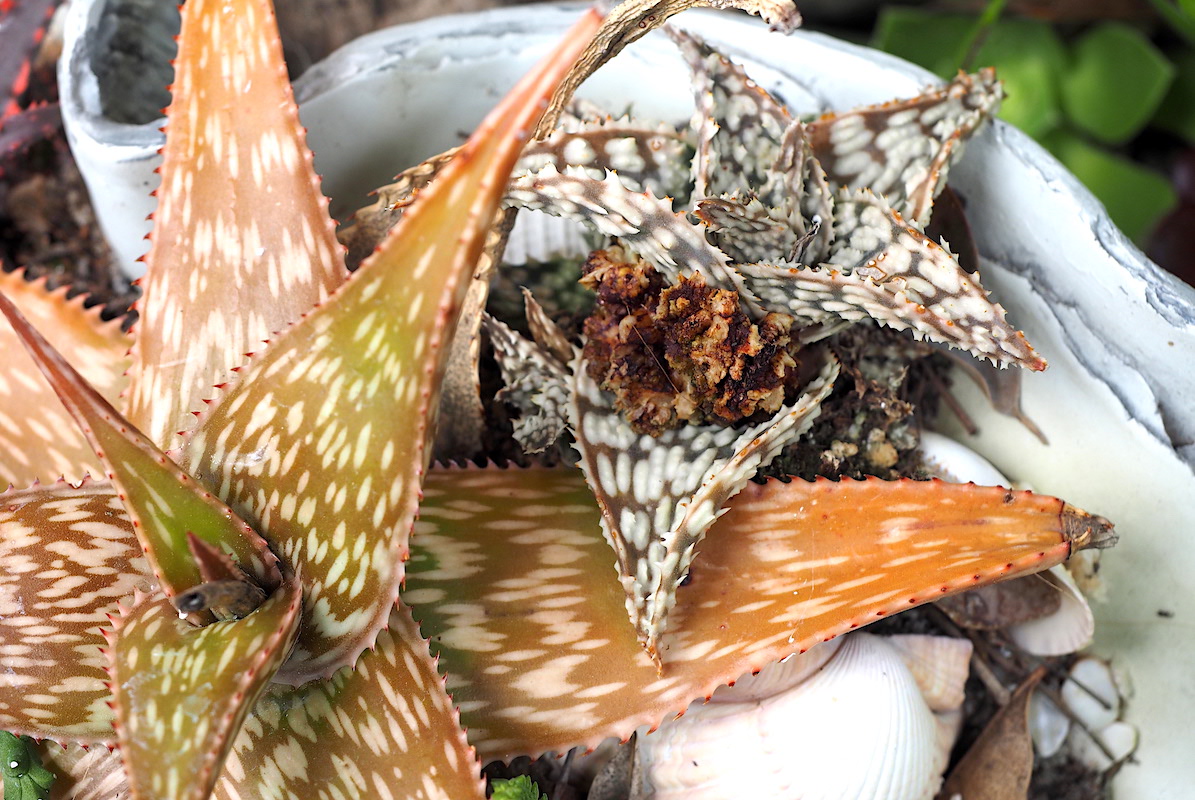
A dwarf aloe with aloe mite (upper right)
New Dwarf Aloe Cultivars
Kelly Griffin, the best known hybridizer of aloes, agaves, and dudleyas, is a succulent celebrity. It's possible to meet him in person at San Diego Cactus & Succulent Society meetings, shows and sales. He's the group's past-president and judges show plants.
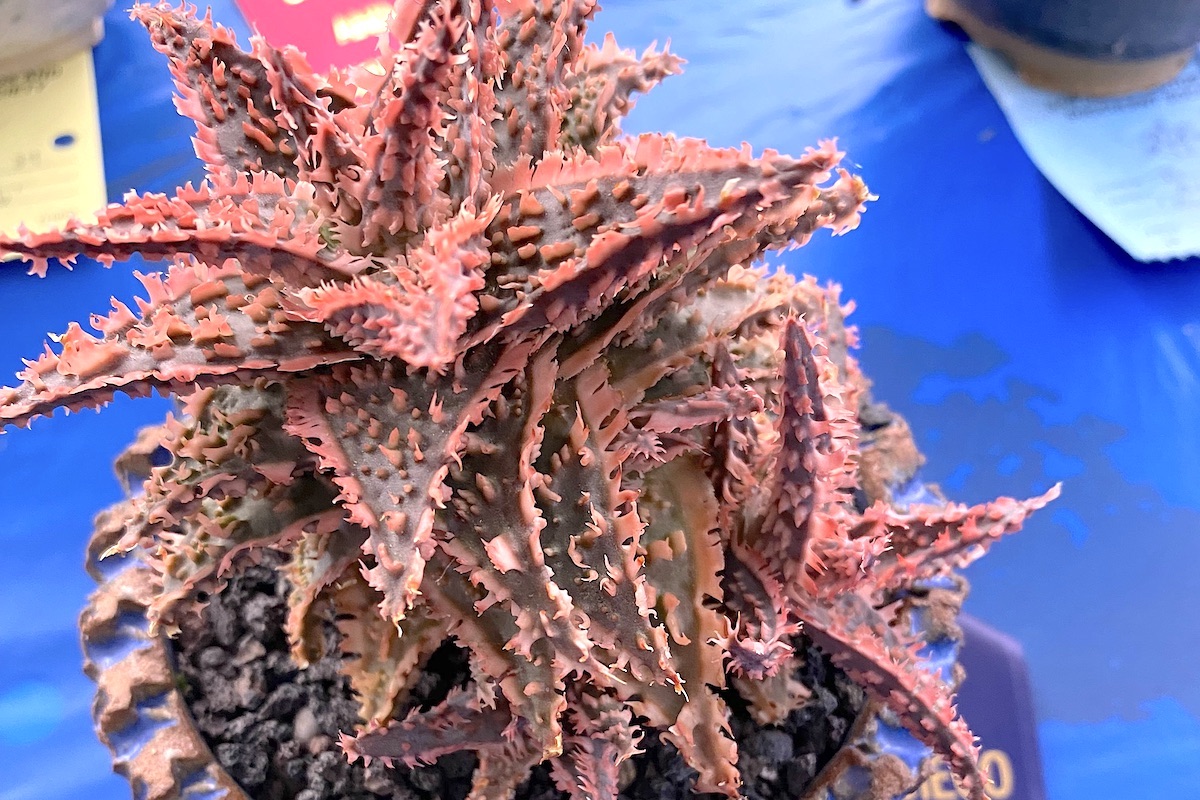
Aloe 'Secret Agent', a Karen Zimmerman cultivar, won a blue ribbon at the San Diego Cactus & Succulent Society Show
Another famed hybridizer is Karen Zimmerman, who is on staff wth the Huntington Botanical Gardens near Pasadena.
Dwarf aloe collectors frequent the Facebook group: "All That is Kelly Griffin." Gina Julia started the group in 2020. "It's mainly for members to show Kelly's aloes in different growing environments," she says, "and how beautiful they really are in their forms and colors. It is also our 'giving back' for the joy he brings to collectors."
Kelly occasionally adds comments and photos, answers questions, IDs plants, and shares insights.
Of recently introduced Aloe 'Snowdrift', Kelly observes, "I had been trying to make a good white aloe as well as every other color combination. In 'Snowdrift', I was pleased with the shape, margins, growth habit, vigor, flower and solid color."
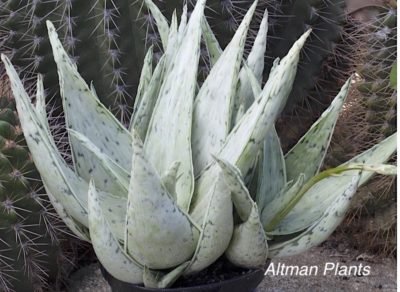
Aloe 'Snow Drift' PPAF (patented, Altman Plants)
Dwarf Aloe Sources
If a cultivar's label says Altman Plants and has the abbreviation PP (for Patented Plant), Altman's introduced it and are the only ones that can legally propagate and sell it. Kelly's on staff at Altman's, so any patented aloe cultivar is probably one of his.
Oasis Water Efficient Gardens north of San Diego has the best selection of dwarf aloes compared to other retail succulent specialty nurseries I'm aware of.
If you can't go to Oasis, shop at cactus and succulent shows and sales or buy from reputable online sources, such as Altman Plants, Mountain Crest Gardens, Fairview Nursery, and Rojas Succulents.
Do you grow dwarf aloes? Do share your tips and favorites in the Comments below!
Gallery of Dwarf Aloes
Among my photos of common dwarf aloes are several, taken by Kelly Griffin, of rarities or crosses not yet for sale. Those photos, used with his permission, are from the "All That Is Kelly Griffin" Facebook group -- as are those in the collage at the top of the page.
Related info on this site
All About Aloes
Ah, aloes! No other succulents add so much color, interest and drama to low-water, mild-climate gardens. Aloes are easy to grow and bloom mainly in winter when nothing else does. The number of Aloe varieties is ever-increasing, with lovely new cultivars continually being introduced.

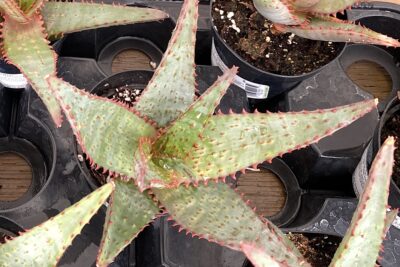
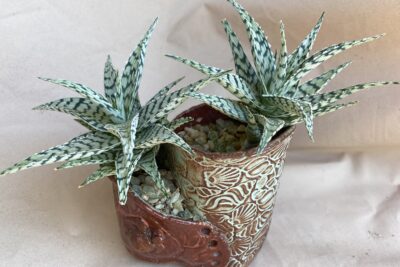
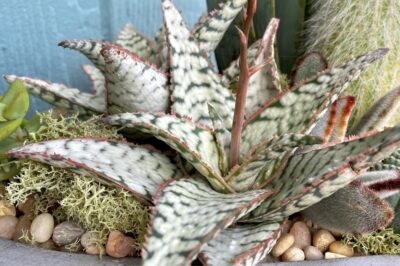
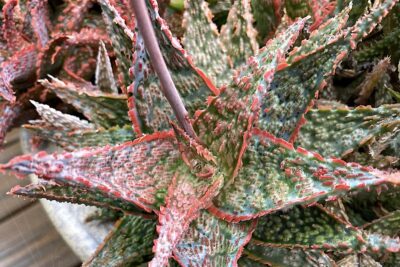
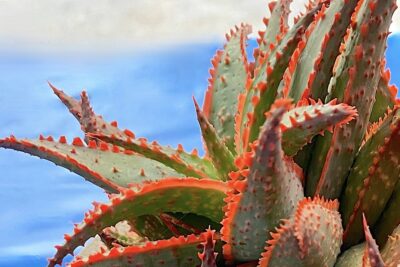
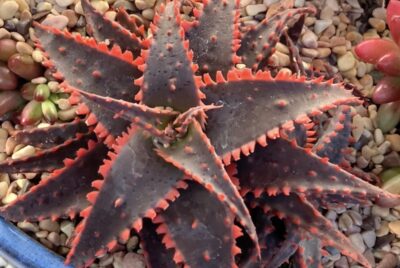
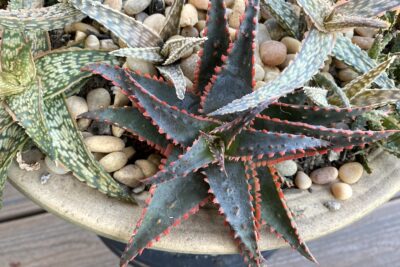
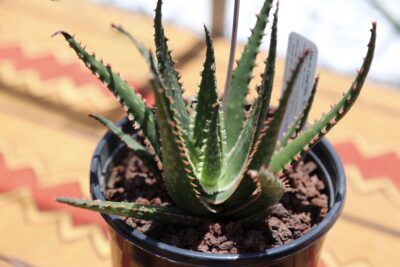
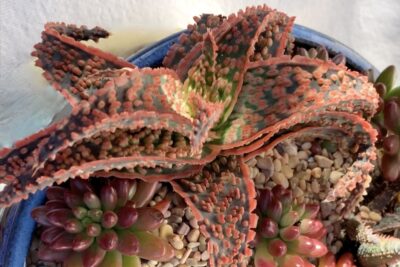
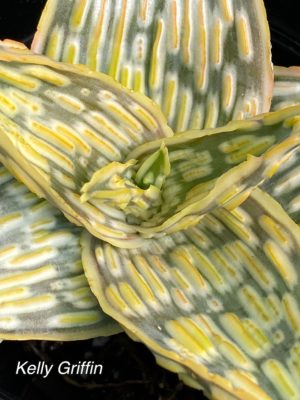
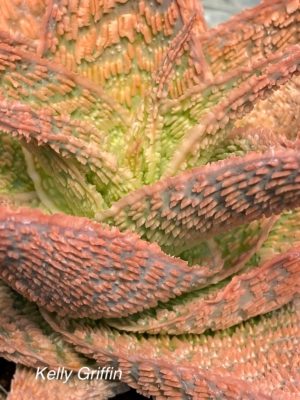
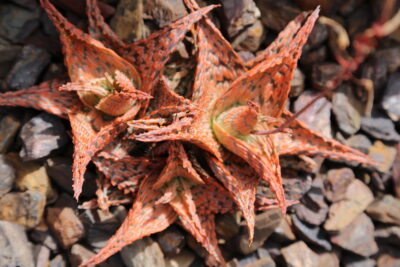
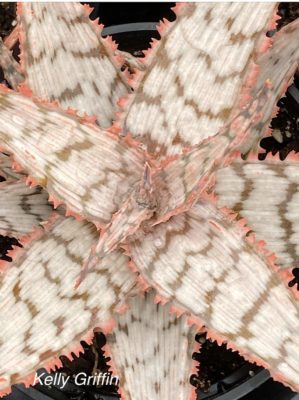
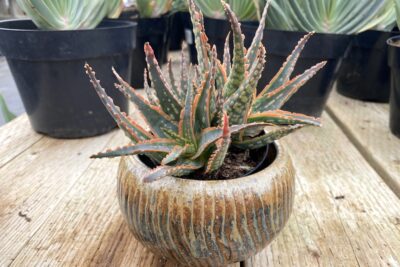
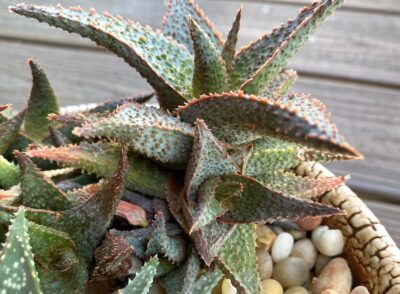
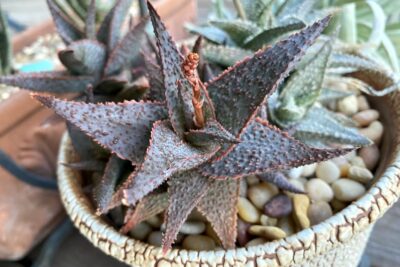
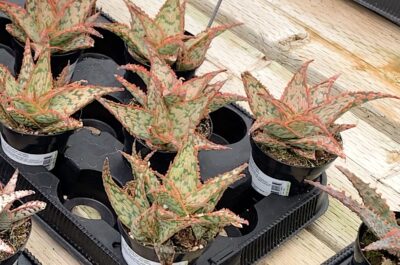
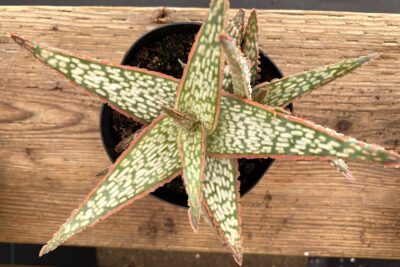
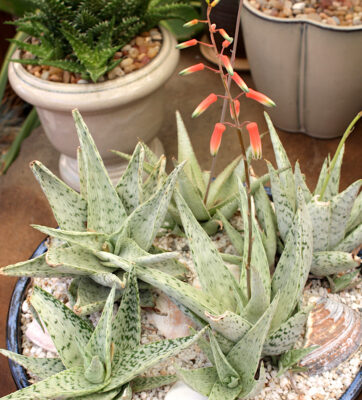
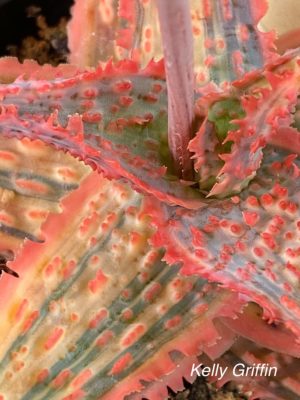
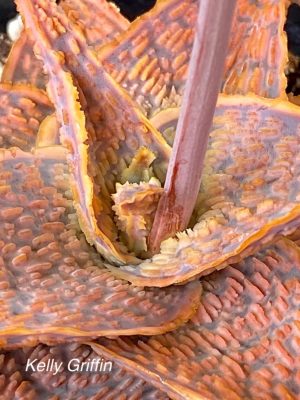
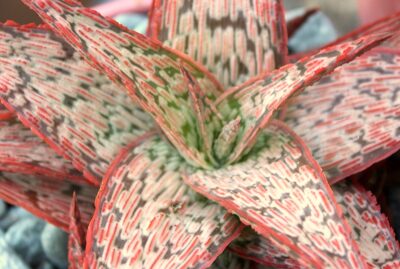
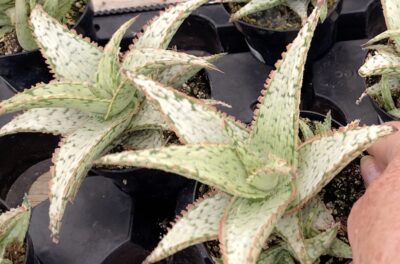
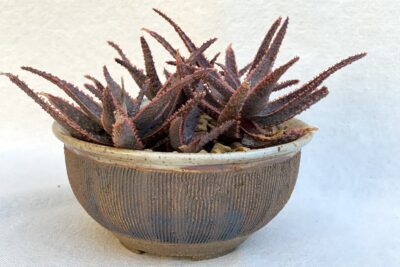
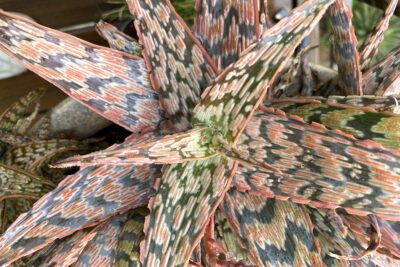
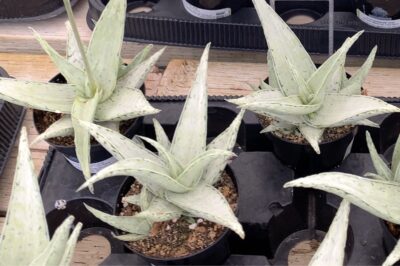
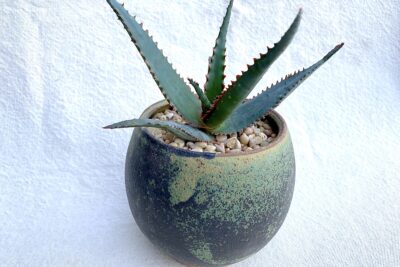
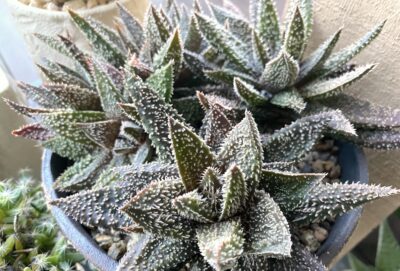
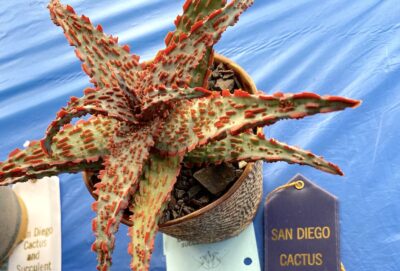
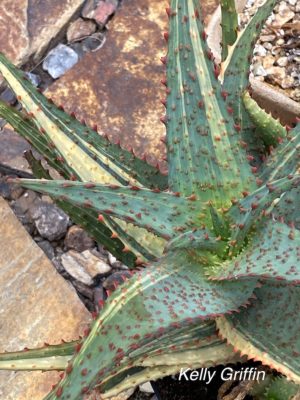
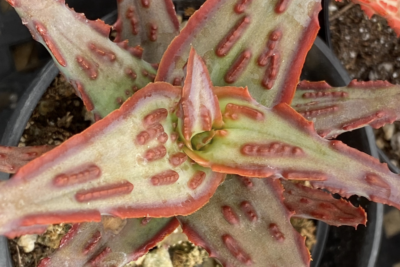
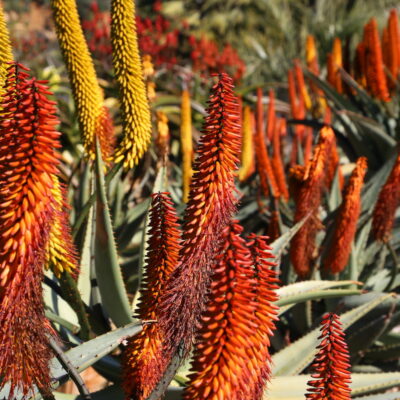
Wow – some incredible plants. I like them all. Aloe ferox w/green flowers stands out for interesting color but also number of blooms. Of course the bi-color blooms are especially attractive – they always remind me of a multi-flavor popsicle I might have bought from an ice cream truck as a kid.
Hi Hans — I agree! Great analogy about the multicolored popsicles. Aloe flowers do make us kids again. This time without the calories!
I live in a suburb of Phoenix with high summer heat day and night. I have trouble keeping the small hybrids going after a couple of years in pots outside (they only get very bright light, no sun). I wondered if there are other growers in the Phoenix area that can provide insight on keeping these wonderful small Aloes going. I have asked to join the Facebook group and will ask there also.
Hi Nancy — It sounds like you’re doing everything right, and I agree that asking the group is a good idea. I imagine one of the characteristics highly desirable in a new cultivars is tolerance for a wide range of climates…though I have no idea how they test for that. Your input is likely very valuable: What makes it and what doesn’t?
Where can we find Kelly’s aloes for sale?
Hi Wendy — I think some of them are for sale via members of the group who are collectors, on a limited basis. (So do post your question there.) And of course, when they pass muster with Altman Plants, Kelly’s hybrids be cloned through tissue culture and available to the mass marketplace, including (hopefully) Altman’s online shop. Altman Plants, the largest wholesale grower of succulents in the US, sells to the garden centers of big box stores nationwide. Even now you can run across treasures. They pop up on social media from time to time as “look what I found!” plants from Home Depot and Lowe’s. Also if you live near Altman Plants in north San Diego County, as I do, it pays to frequent their retail nursery, Oasis Water Efficient Gardens (off North Broadway, Escondido). Amazing plants show up there, and just as quickly are gone. I almost never go there without seeing something I’ve never seen before. I do think we’re at the very beginning of a succulent wave that will bring many more gorgeous cultivars our way…but they may not be commonplace for years.
Hi Debra,
Yes, I’m fortunate to live in SD, North County. Oasis is amazing, next time I am there I’ll be sure to ask about Kelly’s aloes. It’s like shopping at Costco, I can’t get away without spending more than I intended.
Thanks
Me too! When you’re in the aloe section, if you see the abbreviation PPAF (or PPA) on the label after the cultivar name, it means it’s a patented plant. Altman holds the patent, so it’s likely one of Kelly’s.
Stopped by Oasis Water Effect Gardens today! Found two of aloes marked with the PPAF Delta Rose and Mauna Kea others were Snowstorm, Snowdrift, Christmas Sleigh without the PPAF. They are all so pretty I had to get them all. Planning to use them in a planter we just cleaned out, it’s going to have an under the sea theme, these will be my starfish.
Hey that’s wonderful, Wendy. Hm. Either Altman’s decided not to patent them, or they predate Kelly’s association with the company. Pretty sure they’re all his. Thanks for the update!
The Aloe suprafoliata x cameronii KG and Aloe viridiflora x A. ferox KG especially blow my mind but it would be Amazing to use ANY of the landscape sized aloes, they’re all breathtaking in bloom!! WOW! Thank you for highlighting Kelly’s work, it’s always so fun to see the new aloes! Hadn’t seen “Peach Blush” yet, so pretty, love the babies too!
I know! Lots to look forward to! Thanks, Rande.
Just found your site (while trying to find out more about KG’s hybrid aloes). Do you know which plant that is on the top left corner in your group of eight at the beginning of your story? Love the striking bright yellow-green teeth on that one! And do you know of a source for the Aloe ferox with the green flowers? I live in Northern California (near Sacramento), but online sources are fine too. Thanks so much for your time!
Hi Michele — I don’t have the ID on that particular one. The KG Facebook group has photo galleries members can refer to, so you’ll likely find it (and many others) there.
Hi Debra:
Any way you can get Kelly to use his influence at Altman to get them to stop the horrendous practice of disfiguring their plants by spray painting them neon blue, pink, orange etc. I would be hard to believe he could possibly not find this marketing gimmick as unsettling as I’m sure, many others do.
Hi Duane — I mentioned it to an Altman exec ages ago who said, “there’s a market for them, and the plants outgrow it.” IMHO they’re not the worst. See my post, “Silly Succulents and Garden Store Horrors”